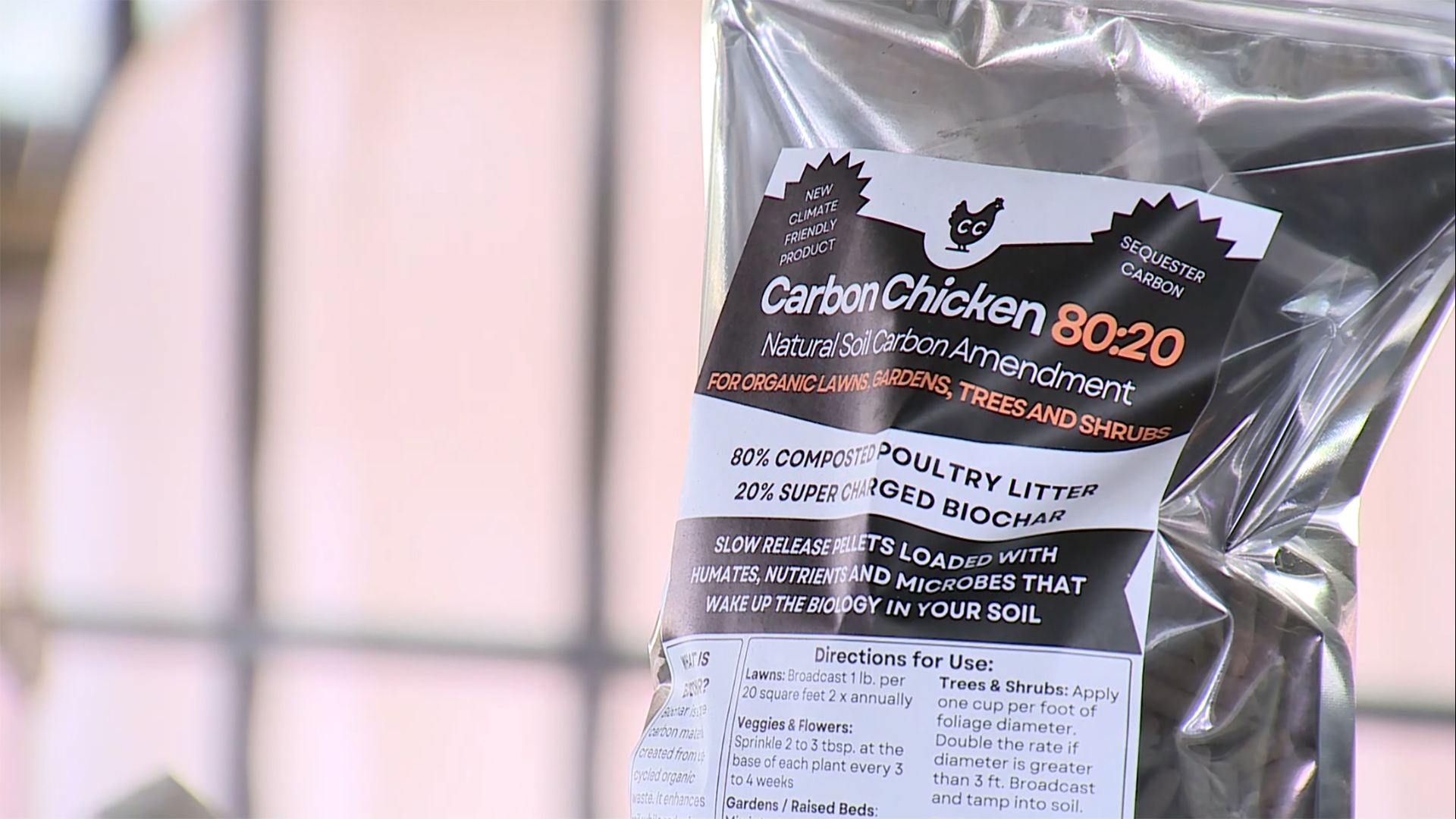FAYETTEVILLE, Ark. — Fayetteville Innovation Farm Carbon Chicken Project works to solve pollution issues in the poultry industry with biochar.
"When you consider everything it touches, you know, from hatching to feeding to the physical production to the processing to the selling. I mean, it's just huge — the economic impact the poultry production has for not only Northwest Arkansas but the whole state," Trenton Roberts said.
Roberts serves as the interim department head and professor of Soil Fertility and Soil Testing at the University of Arkansas. Roberts said poultry farmers have tried in the past to transport poultry litter as fertilizer, but it faces challenges.
"There's kind of a disjunct and a physical distance between where the poultry litter is produced and where our row crop products, like corn, rice, soybean, cotton, are produced," Roberts said.
While chicken litter can serve as fertilizer, it can adversely affect environments in excess. That's why companies like Tyson, Cargill, and Georges have spent nearly two decades in a lawsuit against the Illinois Watershed.
Looking to solve this issue with the Carbon Chicken Project by putting the chicken litter to use in a mix with biochar.
"Biochar is really like charcoal, but it's the type of charcoal that's used in agriculture, so it's made in a more efficient way," Founder and CEO Jody Hardin said.
"It's super porous, if we look at it under a microscope, just thousands and hundreds of pores which can hold water," Co-Founder and CBO Richard Ims said. "We can house our recipe of microbes that are in there. So it's a transport vehicle to let the plant have access to these important nutrients and microbes."
Roberts said others have tried and failed to solve the poultry litter issue, but he admits that this approach has some benefits for farmers.
"It takes what I would consider a byproduct of poultry production and makes it much more affordable to transport so we get greater utilization of it," Roberts said. "I think what it does is it adds value to their byproduct. In some cases, I think it allows them to take advantage of the actual power generation."
Carbon Chicken claimed there is are a lot of positives to the biochar effect, including making healthier soil. However, the company said one way it could entice farmers is how carbon can save and earn money as a conservation practice.
"If we can open up the pores [and] get more moisture in there, that's going to be a huge deal to saving water, you know, into saving costs for the farmers. They may not have to irrigate as much, or they can skip it," Hardin said. "If we can just get the biochar into the chicken litter in these big chicken houses, and every ounce of that litter that comes out is loaded with carbon, and then it goes into the ground, and we're making a huge impact on climate change."
Hardin said the poultry industry is well aware of their work and how it can increase the bottom line for farmers. However, he claims they need a private company to take the risks. Recently, the Carbon Chicken Project was awarded a $591,000 grant from the United States Department of Agriculture (USDA) to conduct research on carbon-negative agricultural practices over five years.
If you would like to learn more about the project or buy their product, you can visit Carbon Chicken's website.
Watch 5NEWS on YouTube.
Download the 5NEWS app on your smartphone:
Stream 5NEWS 24/7 on the 5+ app: How to watch the 5+ app on your streaming device
To report a typo or grammatical error, please email KFSMDigitalTeam@tegna.com and detail which story you're referring to.

